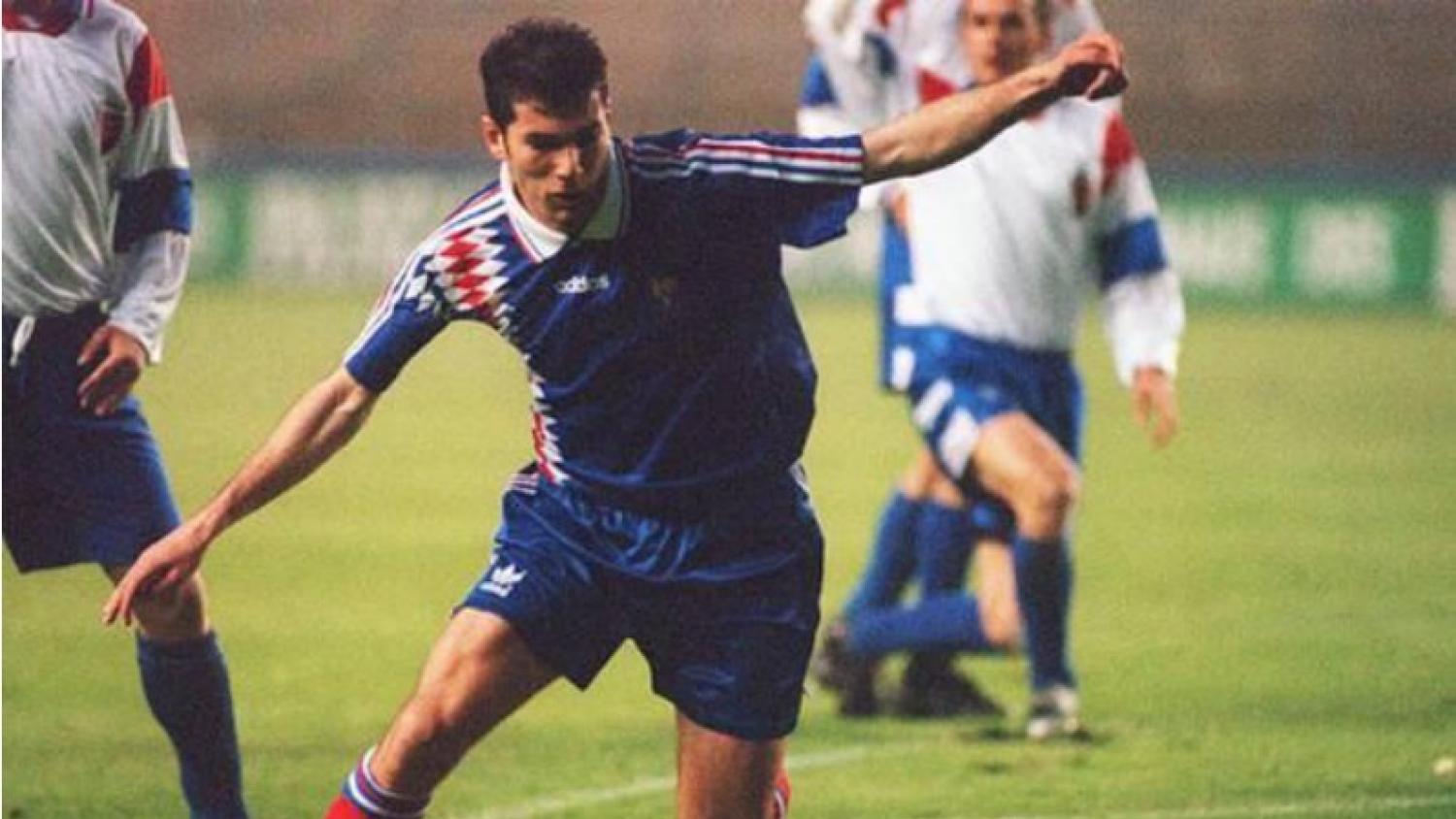For many of you, the name of Zinedine Zidane conjures up memories of a certain bald head flinging itself towards a certain Italian chest. Not that we are judging, it was quite a memorable event. But that it so so highly associated with Zidane's name is as unfair as it is his fault.
Zidane will go down in history as one of the classiest players of all time - and we mean that in terms of his ability on the pitch, as well as his personality as a man. So, to have his career reduced to a single moment is exceedingly cruel, and yet understandably wide spread. Too many people know of Zidane only because of that moment.
The18 has had the pleasure of getting to know the rest of Zidane’s career. And we feel the need to portray it in the way it deserves: as one of the greatest stories of this soccer generation.
Zidane discovered the game of soccer on the notoriously rough streets of La Castellane, in Marseille, France. He played with 10 or so of his friends, practicing moves and refining the technique that would make France fall in love.
But, Zidane learned more than just how to control the ball in La Castellane. He learned how to play the game with humility and respect. These traits would define him as he grew from a boy to a young man, and would help guide him in his travels around France in the name of refining his skills.
When he moved to AS Cannes to play in the French first division for the first time, He built a lasting relationship with his host family. Zidane would contact them regularly, even after he left and became more famous.
After moving from Cannes to Bordeaux, Zidane continued to see more and more success as a club player, and it was not long before our hero was called to action in the name of the French senior national team. The circumstances of his debut set the stage for a display of greatness: France was down 2-0 to the Czech Republic, and needed some inspiration.
Cue Zidane, entering stage left:
His first touches hardly peg him as a world beater. He misses almost as many passes as he completes, and when the camera closes in on him you can see his frustration written all over his face.
And then, the moment of brilliance. At about 1:46 in the video above, a teammate releases Zidane into the Czech final third. He latches onto the ball, steps over one defender, pushes the ball past another, and unleashes a left-footed rocket that beats the keeper from almost 30 yards out. Only 3 minutes later, Zidane heads in the equalizer off an out-swinging corner kick.
The dream is completed, Zidane had arrived.
In an interview after the game, Zidane was quoted saying, “My aerial game and my left foot are my weak points.” His humble roots in La Castallane are probably speaking here, but his words also hint towards a hidden bastion of confidence. His weak points did what a team that included Eric Cantona could not: bring France back from two goals down.
Precocious debuts are nothing new to the soccer world. When a player enters a new league or is called up to the national team, their unfamiliarity with the new level of play - as well as their opponents unfamiliarity with the new player - can often lead to false flares of brilliance that are quickly followed by hype, and an inevitable fizzle as the true talent level of the player becomes clear.
But, for Zidane, that game was truly the beginning of a legend. He would go on to lead Bordeaux to the EUFA Cup Final within two years, soon afterward transferring to Juventus, and then to Real Madrid. He would win everywhere he went. In all seriousness, his trophy closest could have its own address.
He has achieved so much, but this is what he will be remembered for:
It was speculated soon after this incident that Zidane reacted to Materazzi the way he did because of his “sensitivity to injustice.” It is easy to picture this sensitivity forming on the streets of La Castellane, but we can never know when - or how - he picked it up. We can only marvel that a career so illustrious in its middle can be so rough around its edges.



